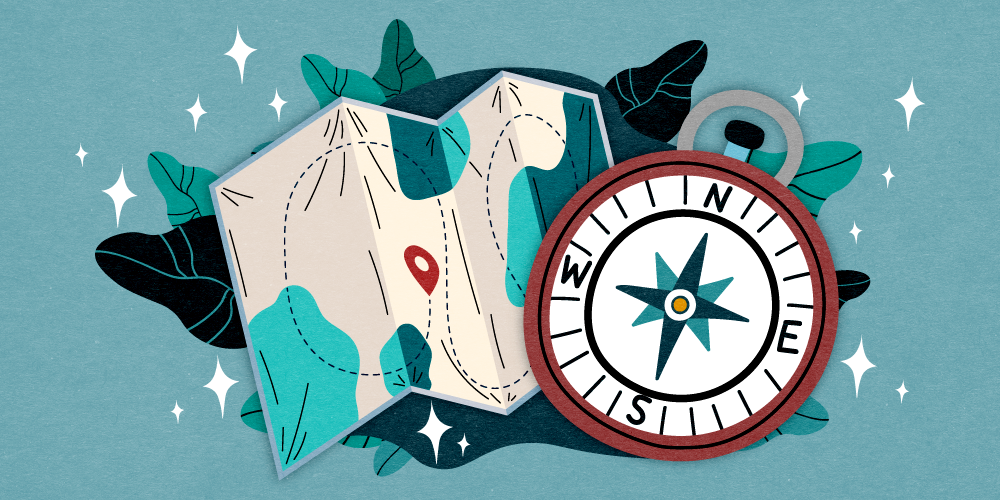January 2024, the University of Utah Spencer Fox Eccles School of Medicine's Tribal, Rural, Underserved Medical Education (TRUE) Program offered its first comprehensive Native American healthcare delivery course. As a medical student dedicated to caring for all communities in the Mountain West, I am grateful for this focus on Native American health.
Utah is home to eight sovereign Tribal Nations. In addition, the University of Utah serves as a regional referral center for an extensive network of health facilities across Nevada, Colorado, Wyoming, Idaho, and Montana—states that are home to over 30 federally recognized Tribal Nations. Understanding the strengths, challenges, and healthcare needs of Native American communities is essential.
Participating in this course has been both a privilege and a challenge. The complex cultural, historical, political, and social landscape of communities with limited healthcare access requires a lifetime to fully understand. This is especially true for Native American communities, given their unique relationship with the U.S. Federal Government.
Cultural Humility as Foundation
As a non-Native American trainee, this course has prepared me to approach my clinical training with humility and curiosity. I am thankful for the excellent educators, all of whom are members of various Tribes in the Mountain West/Southwest region, who have guided me towards a better understanding of the Native American healthcare landscape.
Cultural humility is the foundation of our Native American health curriculum. Our course director, Mr. Alan Barlow, Executive Director of the Urban Indian Center of Salt Lake and Diné Tribal member, emphasized its importance. While cultural fluency is an ambitious goal, cultural humility is within reach.
Active listening and empathetic understanding are key to this approach, laying the groundwork for authentic connection and effective healthcare delivery.
A Holistic Approach to Health
The TRUE curriculum, including the new Native American health course, has deepened my respect for the complexities of medically underserved communities. Reflecting on the history and current health disparities of Native American communities, I recognize the profound impact of cultural background and grapple with how to acknowledge the generational trauma of my patients, knowing I may never fully "understand" as someone with lived experience can.
The firsthand knowledge from our educators has been invaluable, especially the introduction to the healthcare "wheel" model, which emphasizes physical, emotional, spiritual, and social well-being. This holistic view of health broadens the definition of healthcare, particularly when serving Native American communities, and provides an opening to connect personally around a universal desire to live in wellness.

My TRUE education has led me to contemplate our current healthcare delivery models and the pursuit of better outcomes for Native American patients. The course provided a foundational understanding of Indigenous history, federal law, and Tribal sovereignty, crucial for grasping current health outcomes and moving towards expanding Tribal control.
The history of subjugation and colonization passed down through generations, underpins many health disparities today. In response, I aim to remain curious and compassionate, cultivating cultural humility within myself.
Looking to the Future
After residency, I am considering working in a Tribal health facility. Understanding this system is vital for connecting with and caring for Native American patients. The course highlighted the importance of culturally responsive and trauma-informed care, integrating traditional healing practices and cultural beliefs. Our educators underscored the significance of community, spirituality, and connection to the land in promoting well-being.
Looking ahead, I am committed to providing effective, equitable, high-quality, and culturally sensitive care. Our final class offered insights into indigenizing health frameworks, emphasizing the need for inclusive and culturally appropriate systems. If we can encourage the healthcare system to move beyond social determinants of health and focus, instead, on cultural engagement, I believe that classically "Indigenous" concepts of health and wellness can be incorporated into mainstream healthcare systems to the benefit of everyone.
In self-reflection, two themes from this course emerge as commitments I've made to myself and to those I will serve: continuous learning and connection. My most significant teachers will often be my patients. Whether I have known a patient for an hour or a decade, I believe deep connection is critical to making a difference in their lives. I aim to foster mutual respect and understanding, approaching each community I serve with an openness to learn and grow. I hope to create an environment where my patients, Native and non-Native alike, feel seen and heard.
My most significant teachers will often be my patients. Whether I have known a patient for an hour or a decade, I believe deep connection is critical to making a difference in their lives.
Sarina Scott
Native people often face many barriers, disparities and inequities when it comes to healthcare. Family Nurse Practitioners from the Urban Indian Center of Salt Lake (UICSL) Danielle Puri and Joshua Twitchell highlight the significance of cultural responsiveness in healthcare for Native patients and provide tips to practice.
Community health workers Kamaile Tripp-Harris and Princess Bombyck and medical students Wesley Allen and Silvia Soule share their event's impact on the community, how medical students and community health workers were involved, and how a coalition came together to serve their community.
With the month of Ramadan quickly approaching for our Muslim patients, many will want to keep up with their dental routines, so that fasting doesn’t have a negative impact on their oral health. University of Utah School of Dentistry's Arman Farhadtouski and Marcy Rogers empower their fellow providers with tips for Ramadan-friendly dental care.
